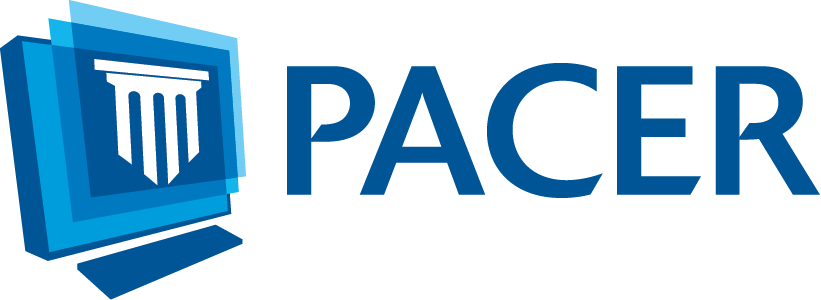
SYNDICATE LEGAL SUPPORT SERVICES

Syndicate Legal Support Services
(a Professional Services Corporation)
8383 Wilshire Blvd.
Beverly Hills, California 90211
Phone: (310) 463-5122
Email: Click Here






There are two primary exchanges in Taiwan: the Taiwan Stock Exchange (TWSE) and the Taipei Exchange (TPEx). In 2016, there were 24 domestic and foreign issuers who had their shares primarily listed on the TWSE with capital of NT$11.8 Billion raised from the IPO, while 36 domestic and foreign issuers had their shares primarily listed on the TPEx with capital of NT$13.7 Billion raised.
As of 2016, there were 892 domestic and foreign issuers in total who have had their shares listed on the TWSE with market capitalization of NT$27,247.913 Billion, and there were 732 domestic and foreign issuers in total who have had their shares listed on the TPEx with market capitalization of NT$2,722.643 billion.
Who are the issuers in the IPO market? Do domestic companies tend to list at home or overseas? Do overseas companies list in your market?
Both domestic and foreign issuers may have their shares primarily listed in Taiwan. Domestic companies tend to list at home, while some with major operations in the People’s Republic of China (PRC) may choose to list at Hong Kong or the PRC (mainly on Shanghai or Shenzhen stock exchanges). Only very few domestic issuers have their shares listed offshore (the most famous one would be Taiwan Semiconductor Manufacturing Company Limited that has its American depository receipts traded on the NYSE).
The Taiwan IPO market has been open to foreign issuers since 2009. Subject to the listing requirements set out in the Taiwan Stock Exchange Rules on Review of Securities Listing (TWSE Listing Rules) or Taipei Exchange Rules Governing the Review of Securities for Trading on the TPEx (TPEx Listing Rules), a foreign issuer that has been duly incorporated and validly exists as a company limited by shares under the laws of its place of incorporation, other than the PRC, is eligible to apply for an IPO listing in Taiwan.
What are the primary exchanges for IPOs? How do they differ?
The TWSE and the TPEx are the primary exchanges for IPOs. Company size and profitability would be the main concerns for an issuer to decide whether to list on the TWSE or the TPEx. The TWSE requires that an issuer applicant have paid-in capital or net value (only applicable to foreign issuers) in the amount of at least NT$600 Million, or its market capital (only applicable to foreign issuers) at the time of listing must have reached at least NT$1.6 billion, while TPEx only requires that a domestic issuer applicant have paid-in capital of NT$50 Million and a foreign issuer applicant have shareholders’ equity in the amount of at least NT$100 Million.
The TWSE requires that a domestic issuer applicant’s net income before tax in its financial reports meets certain criteria (eg, the net income before tax for the most recent two fiscal years represents 6 per cent or greater of the share capital stated in the financial report) with no accumulated loss in the final accounts for the most recent fiscal year, while the TPEx only requires the ratio of net income before tax to share capital stated in the financial report to be 4 per cent or more for the most recent fiscal year, with no accumulated loss in the final accounts for the most recent fiscal year. A start-up company obtaining an assessment opinion from the competent authorities (ie, the Industrial Development Bureau, Counsel of Agriculture or Ministry of Culture) stating that it is part of the technology, agriculture, or culture and creative industries, with marketable products or services, may be exempt from the period-of-establishment and profitability requirements (see question 12) and may apply to the TPEx or the TWSE for the primary listing.
Before an issuer can be eligible as an applicant for IPO with the TWSE or the TPEx, it must first complete the registration of its shares and have its shares traded on the emerging stock market (ESM) for at least six months (foreign issuers may bypass this requirement by going through a six-month underwriter advisory period). The TPEx launched the ESM in 2002, on which shares may be traded over the counter by negotiation. ESM registration is not considered a formal IPO, but serves as a platform for issuers to acquaint themselves with securities market regulations and enjoy a certain level of liquidity of their stocks before the IPO. In other words, it serves as a ‘warm up’ before an issuer is eligible for a formal listing on the TWSE or the TPEx.
For a foreign issuer, similar listing criteria are applicable, except that a foreign issuer may replace the six-month ESM period with a six-month advisory period by engaging a lead underwriter in Taiwan.
Which bodies are responsible for rule making and enforcing the rules on IPOs?
The Financial Supervisory Commission (FSC) is the competent authority for public offering companies. Companies registered on ESM or traded on the TWSE or the TPEx are subject to the Securities and Exchange Act (SEA), the TWSE Operating Rules, the TPEx Rules Governing Securities Trading on the TPEx, and other applicable laws and regulations. Certain provisions of the SEA are also applicable to foreign issuers whose shares are registered on the ESM or listed on the TWSE or the TPEx.
Must issuers seek authorization for a listing? What information must issuers provide to the listing authority and how is it assessed?
An issuer should file an application for listing with the TWSE or the TPEx. Along with the application, the issuer must provide:
-
consolidated financial reports for the most recent three fiscal years, certified and audited by a certified public accountant (CPA);
-
a financial forecast for the two most recent quarters;
-
recommendations on the internal control system for the most recent three years issued by a CPA;
-
a listing evaluation report issued by the underwriters;
-
prospectus, legal matter checklist issued by Taiwan legal counsel;
-
a list of corporate insiders; and
-
any other documents and information required by the TWSE or the TPEx.
Upon receipt of the application, the TWSE or the TPEx will commence with the documentation review and provide questions and comments thereon. The issuer may respond to the TWSE’s or the TPEx’s queries in writing or by oral presentation. The TWSE or the TPEx may request that the issuer, underwriters, accountants and legal counsel provide supporting documents and responses to its questions.
What information must be made available to prospective investors and how must it be presented?
When applying for an IPO, the issuer must prepare a prospectus. The prospectus should include the following major items:
-
a company overview, including the introduction of the company and its group, the group structure, risk matters, capital shares, the directors, supervisors, managers and officers, and major shareholder;
-
an operational overview, including business scope, competitive strategies, business objectives, strategies and plans, overview of markets, production and sales, major contracts and other necessary supplements;
-
a plan of issuance and use of proceeds, including the pricing method for this issuance and an analysis on the plan of use of proceeds and relevant agreements;
-
a financial overview, including a summary of financial data, financial statements, a review and analysis on the financial condition and operation for the most recent five fiscal years and relevant significant matters;
-
the status of corporate governance and other necessary disclosure;
-
a conclusive evaluation report from the underwriters;
-
legal opinion issued by the issuer’s Taiwan legal counsel;
-
methods for shareholders to exercise shareholders’ rights; and
-
material contracts.
At the time of filing the listing application with the TWSE or the TPEx, the issuer must upload its prospectus onto the Market Observation Post System (MOPS) at http://mops.twse.com.tw/mops/web/index. From then on, the issuer must upload material information onto the MOPS in a timely manner.
What corporate governance requirements are typical or required of issuers conducting an IPO and obtaining a stock exchange listing in your jurisdiction?
An IPO issuer is required to have a board of at least five directors, including at least two independent directors, and the number of independent directors may not be less than one-fifth of the total number of directors on the board. Furthermore, an IPO issuer must have at least three supervisors or an audit committee composed of all the independent directors. The number of audit committee members should be at least three. At least one of the audit committee members must have expertise in accounting or finance. In addition, an IPO issuer has to have a compensation committee. The qualifications and responsibilities of compensation committee members are stipulated under the rules issued by the Taiwanese authorities.
For a foreign issuer, at least one independent director has to have a registered residence in Taiwan. Foreign issuers will, however, need to have two independent directors with registered residences in Taiwan if the Taiwanese courts do not have jurisdiction over matters related to shareholder protection as a result of the law of the jurisdiction in which the foreign issuer is incorporated or because the foreign issuer fails to include a stipulation regarding Taiwanese courts’ jurisdiction over such matters in its articles of incorporation.
Are there special allowances for certain types of new issuers?
The period-of-establishment and profitability requirements may be waived for technology-based companies, such as high-tech or pharmaceutical companies, if they have obtained assessments from the competent authorities stating that they are technology-based enterprises and that their products or technologies have been successfully developed and marketable.
However, starting from May 2016, it is required that the net value of the issuer must not be lower than two-thirds of its share capital. To apply for such assessment, applicants are required to submit, inter alia, assessment reports on the products, which include sales data or consolidated financial statements audited by Taiwanese accountants, tax returns, catalog of the products, and market surveys, or assessment reports on the market value of the technologies.
What are the main considerations for foreign issuers looking to list in Taiwan? Are there special requirements for foreign issuer IPOs?
Taiwanese capital markets are known for their excellent price-to-earnings ratios and high liquidity. In addition, the costs of IPOs and secondary public offerings are relatively low compared with capital markets in other areas within the region, such as Shanghai, Hong Kong and Singapore. Due to the prosperous high-tech industry in Taiwan, technology-related companies are given higher value by local investors than similar companies on other stock exchanges within the region.
With regard to the shareholding structure of a foreign issuer, no citizen, juristic person, organisation or other institution from mainland China may individually or jointly hold more than 30 per cent of the foreign issuer’s equity interest or be a controlling shareholder of the foreign issuer. For a Taiwanese-controlled foreign issuer of which more than 30 per cent of the total issued shares are owned by mainland China investors, special approval is required for a listing application.
As of the time of writing, however, such special approval has never been granted. Prior to submitting the listing application, the foreign issuer must have been advised by an underwriter in regard to Taiwanese listing requirements for a period of six months or have registered its shares on the ESM for at least six months. All foreign issuers are required to amend their articles of incorporation to include certain provisions on protecting Taiwanese or minority shareholders before submitting the listing application.
RATES:
Rates will be based on an Hourly Rate of $45.00 per hour plus expenses incurred including, but not limited to, postage and purchase of any special software necessary to complete task. Time to complete the job will be estimated and any projects estimated over $200.00 will require a TBD down payment. Syndicate Legal Support Services Bills for Services Rendered each week. Syndicate Legal Support Services requires a signed contract, which outlines the project details, prior to beginning any work.